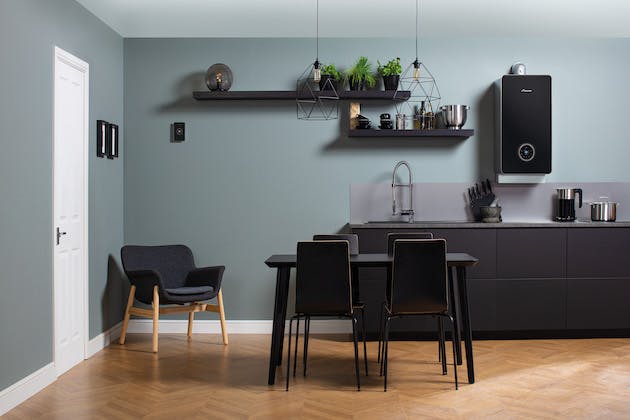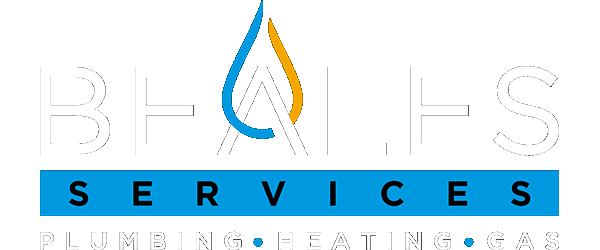When you are looking to install a new boiler, it can be confusing to know which boiler is best for you. The main three types you will come across are Combi, System and Conventional. While you may be familiar with these terms, how familiar are you with what they actually mean? To help make things a little clearer, the team at Beales Services have created a very useful guide so you can learn all about the different types of boilers.
It may be fairly complicated when it comes to installing a new heating system or replacing your old system with a new boiler because there are so many different types of boilers available. This begs the obvious question: what sort of boiler do you require for your home? The answer to the issue of what sort of boiler you require is not simple since there is no universal solution that works for every home. In summary, there is no "best boiler" that is suitable for everyone. So which boiler is best suited to your home?

Different boiler fuel types: Which one best suits you?
Before we dig into the ins and outs of the type of boiler is best suited to your home, we must first establish which boiler fuel type that you are likely to want to use.
The first step is to determine what type of fuel will be utilised to power the boiler in the first place. You may have an existing fuel source that you want to replace, or you may have an existing configuration that you want to preserve.
So, when purchasing a new boiler system, the first thing to consider is the fuel type for the boiler. In the UK, this will most likely be one of the following:
- Gas boilers are powered by the mains gas supply. This is fairly frequent in the United Kingdom.
- Electric boilers are more common in smaller structures such as apartments and cottages.
- LPG and oil boilers are less frequent and are found in places without a gas supply. Larger residences, such as those in the countryside, are more likely to include this feature.
- Solar Thermal Power, which is the least popular solution, but quickly growing in popularity, is typically utilised as a supplement to another renewable energy source or in specialised applications.
Every fuel type has benefits and drawbacks. For example, although gas boilers are typically less expensive to operate, they need to be connected to the gas grid. Conversely, electric boilers are more cost-effective to operate but are also simpler to install. Oil and LPG boilers work well in isolated locations without a gas supply, but they need fuel delivery on a regular basis. Although solar thermal systems are very cost-effective and environmentally beneficial, they frequently require a backup system and are dependent on the presence of sunlight.
The different types of boilers available:
Conventional boilers
Conventional boilers require a cylinder and two water tanks, usually located in the loft. One tank feeds the cylinder, while the other maintains your system as a whole. To accommodate these components, you need to have enough free space in your home. Your cylinder also comes with downsides, as it needs to be heavily insulated to avoid heat escaping.
However, conventional boilers can easily meet the high demand for hot water, so are perfect for homes with several bathrooms. They are also good for homes with low water pressure.
System Boilers
Similar to a conventional boiler, system boilers have a cylinder that is usually located in an upstairs cupboard. As a result, they have similar downsides when it comes to insulating the cylinder. However, they require much less space which is perfect for homes with a high demand for hot water but less available space.
You can use multiple hot water appliances at the same without losing water pressure, which is another great advantage.
Homes with several bathrooms and higher hot water consumption are best suited for system boilers. They are ideal for larger families since they can provide hot water to several taps at once without lowering pressure. Another major benefit over traditional boilers is their small design, which takes up less room while providing the same functionality.
Combination (combi) Boilers
Combi boilers are becoming very popular, as they require only a boiler unit and nothing else. This makes them perfect for smaller homes, as they require no additional loft or upstairs space. They heat water directly from your mains, which means you require good water pressure.
You receive hot water instantly when you need it, which puts them ahead of the other boilers. However, they will struggle to meet the high demand for hot water, so this is something you need to consider. If you have a small home and a small family, it could be a perfect choice for your home.
Combi boilers are renowned for their ease of use and effectiveness. They are a great option for houses with limited space because they do not require a separate hot water cylinder or cold water storage tank. Because there is no need to heat water that isn't being used, their capacity to offer hot water on demand lowers energy waste. Nevertheless, a combi boiler might not be enough to power every outlet at once in a house with several bathrooms.
Need a new boiler in South Woodford?
Our team installs new boilers across Walthamstow, Wanstead, South Woodford, Woodford, and Leytonstone. Hopefully, this post has helped you to decide which boiler is best for you. If not, simply get in touch with our team today!
Give us a call on 07921705246 / 0203 488 0883 or email us at hello@bealesservices.co.uk. You can also fill out the contact page on our website. We hope to hear from you soon!

